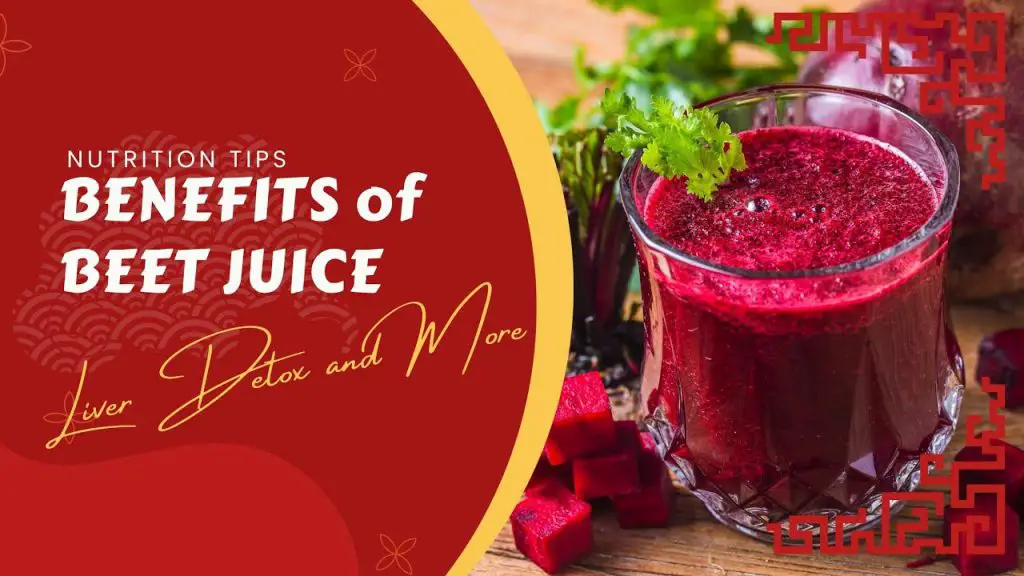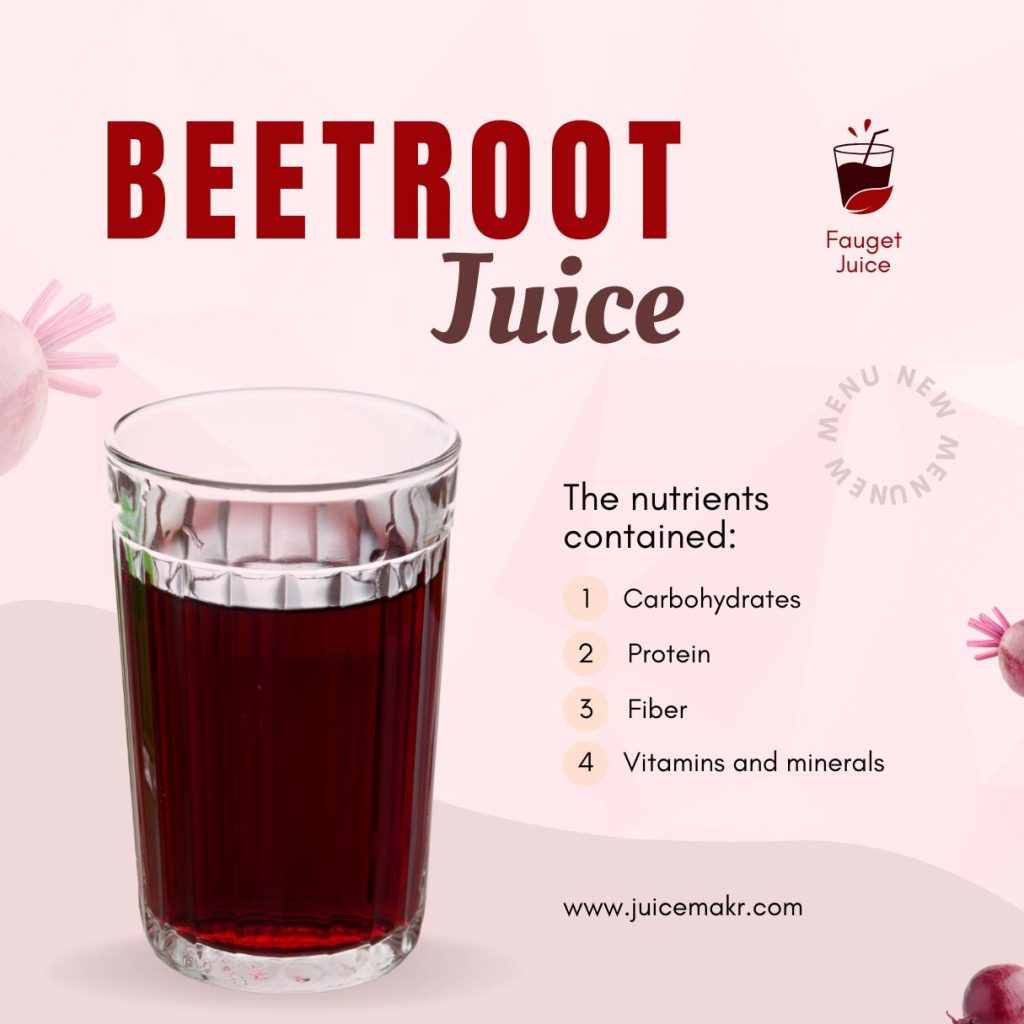There are a lot of natural cures promoted for liver health. Beetroot juice is one of the cures. But is beetroot juice beneficial to the liver? Let’s investigate the science underlying this colorful beverage.
The Nutritional Power of Beetroot Juice
Beetroot juice is a powerhouse of nutrients that can support overall health, including liver function. Here’s a closer look at its key components:
Vitamins
- Vitamin A:
- Essential for maintaining healthy vision, skin, and immune function.
- Supports the production and growth of liver cells.
- Vitamin B6:
- Plays a crucial role in metabolism.
- Helps in the creation of neurotransmitters and red blood cells.
- Vitamin C:
- Acts as a potent antioxidant.
- Supports the immune system and helps in collagen production, which is vital for tissue repair.
Minerals
- Iron:
- Crucial for the formation of hemoglobin and oxygen transport in the blood.
- Helps prevent anemia, which can strain the liver.
- Magnesium:
- Supports muscle and nerve function.
- Helps regulate blood pressure and blood sugar levels.
- Potassium:
- Essential for maintaining fluid and electrolyte balance.
- Supports heart and muscle function, which indirectly benefits liver health by ensuring proper circulation.
Antioxidants
- Betalains:
- These are pigments that give beets their vibrant color.
- They have anti-inflammatory and antioxidant properties, helping to protect the liver from oxidative stress.
- Phenolic Compounds:
- These compounds further contribute to the antioxidant capacity of beetroot juice.
- They help neutralize free radicals that can damage liver cells.
Nitrates
- Nitrates in beetroot juice convert to nitric oxide in the body, which helps:
- Improve blood flow.
- Lower blood pressure.
- Enhance oxygen delivery to organs, including the liver.
Fiber
- Although beetroot juice contains less fiber than whole beets, it still provides some dietary fiber which aids in digestion and supports a healthy gut. A healthy gut is crucial for liver function as it helps in the detoxification process.
Other Bioactive Compounds
- Betacyanins and Betaxanthins:
- These are specific types of betalains that have been studied for their ability to reduce inflammation and protect cells from damage.
How Beetroot Juice Supports Liver Health
Beetroot juice is not just a colorful addition to your diet; it also offers numerous benefits for liver health. Here’s an in-depth look at how it supports the liver:
Antioxidant Properties
Beetroot juice is rich in antioxidants, particularly betalains. Oxidative stress can harm liver cells; these antioxidants help prevent it. Beetroot juice protects the liver from free radical damage by lowering oxidative stress.
- Betalains:
- These pigments provide powerful antioxidant effects.
- They help neutralize harmful free radicals, preventing cell damage in the liver.
- Vitamin C:
- Acts as a potent antioxidant.
- Helps regenerate other antioxidants within the body, enhancing overall antioxidant capacity.
Detoxification
The liver is the primary detoxification organ of the body. In a number of respects, beetroot juice aids in this detoxification process.
- Phase 2 Detoxification Enzymes:
- Beetroot juice stimulates the production of detoxification enzymes.
- These enzymes aid in neutralizing and excreting harmful substances from the body.
- Glutathione Production:
- Beetroot juice helps increase levels of glutathione, a powerful antioxidant and detoxifying agent.
- Glutathione binds to toxins, making them easier for the liver to process and eliminate.
Anti-Inflammatory Benefits
Long-term inflammation can seriously damage the liver, resulting in conditions such as fatty liver disease. The antioxidants in beetroot juice lower inflammation and support liver health in general.
- Betalains:
- These compounds have strong anti-inflammatory effects.
- They reduce the production of inflammatory molecules, protecting the liver from chronic inflammation.
- Phenolic Compounds:
- These compounds also exhibit anti-inflammatory properties.
- They help lower inflammation markers in the liver.
Improving Blood Flow
Nitrates found in beetroot juice are converted by the body to nitric oxide. When nitric oxide helps increase blood flow and oxygen delivery to the liver, it works at its best.
- Nitrates:
- These compounds improve vascular function.
- Enhanced blood flow ensures the liver receives adequate oxygen and nutrients.
- Nitric Oxide:
- Helps relax and dilate blood vessels.
- Promotes efficient delivery of oxygen and nutrients, supporting liver health.
Fat Metabolism
The liver plays a key role in fat metabolism, and beetroot juice can aid in this process.
- Betaine:
- Found in beetroot juice, betaine supports the liver’s ability to process fats.
- Helps prevent fat accumulation in the liver, reducing the risk of fatty liver disease.
- Fiber Content:
- Although beetroot juice contains less fiber than whole beets, it still provides some dietary fiber.
- Fiber aids in digestion and helps regulate cholesterol levels, which can benefit liver health.

Conclusion
So, is beetroot juice good for your liver? The data points in that direction. A liver-friendly diet would benefit greatly from its antioxidants, anti-inflammatory qualities, and capacity to improve detoxification. To make major dietary adjustments, though, always speak with a medical practitioner.

Je m’appelle Gunther Adam et je suis ravi de partager avec vous le monde des saveurs vibrantes, de la vie saine et de l’art du goût. Learn More




